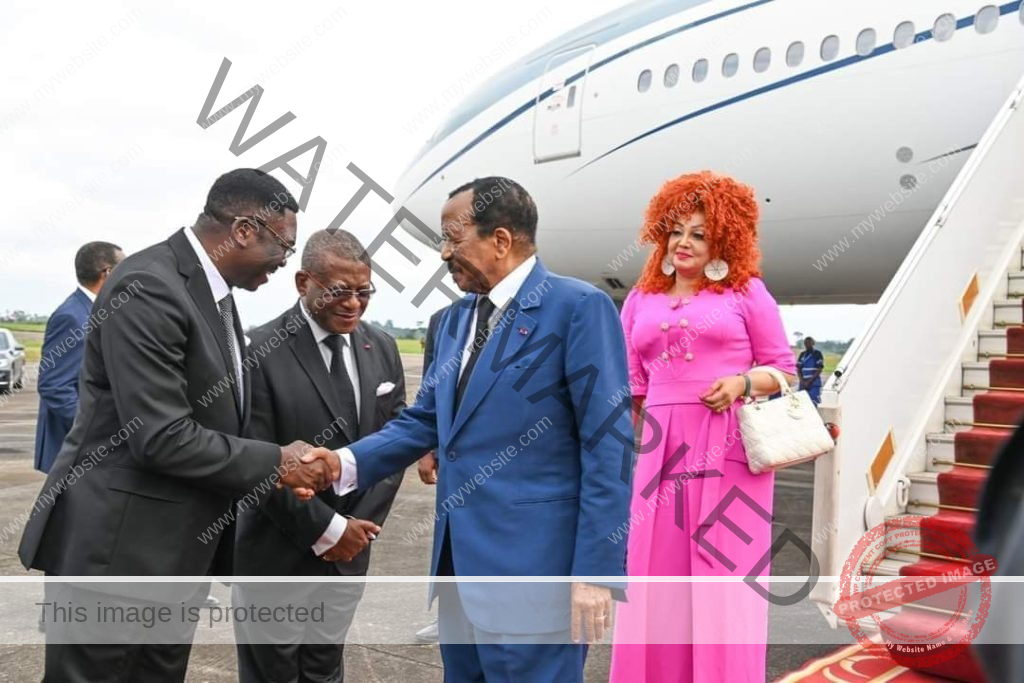Paul Biya master of his game: He does not compromise in the sense of mutual concession. He absorbs, neutralises, and renders his opponents harmless — all while strengthening his grip on power.
By Ali Dan Ismael Editor-in-Chief, The Independentist
Since the beginning of the war with La République du Cameroun (LRC), Dr. Samuel Ikome Sako has faced repeated calls — both internal and external — to seek compromise. Yet before weighing such a path, it is essential to examine what “compromise” has meant in the hands of Paul Biya over the years, and whether he is the kind of leader with whom genuine compromise is even possible.
The Myth of Compromise with Paul Biya
Paul Biya has ruled Cameroon like a pseudo-monarch for over four decades. The idea that such a leader could be a genuine partner in compromise is, at best, wishful thinking — at worst, a fatal miscalculation.
Early in his career, Biya reportedly declared in the French phrase “Après moi, c’est le chaos” — “After me, there will be chaos.” In other words, his reign would be the only order holding back collapse, and any alternative would be disaster. That is not the mindset of a leader looking for shared solutions; it is the mindset of a ruler who believes in his own indispensability.
Looking back, Biya has been true to his words — for those who had eyes to see. The country today exists in a kind of mechanical dynamic equilibrium: stable on the surface, yet constantly on the brink. Anything can happen. On social media, the Bassa and Bamileke communities trade insults and accusations, deepening ethnic rifts. In the north, political factions quietly prepare for street confrontations if the need arises. And all the while, the French watch with thinly veiled exhilaration, knowing that the chaos they helped create will give them a chance to shape — and exploit — its outcome.
For Ambazonia, this instability is both a warning and an opening. It is a warning because chaos in Yaoundé can spill over, threatening our own communities. But it is also an opening because it exposes the fragility of the system we have been fighting to free ourselves from. In moments when the centre is this brittle, those who stand firm on principle — without being lured into false compromise — are in the best position to shape the post-crisis order.
The 1992 Election: A Lesson in Manipulation
The 1992 presidential election remains one of the clearest examples of Biya’s “compromise” playbook. When opposition leader John Fru Ndi came within reach of victory, Biya refused to accept defeat. With French backing, the results were manipulated, and Fru Ndi was eventually softened through selective political accommodation.
Despite years of accusing Biya of corruption, repression, and electoral fraud, Fru Ndi was later brought into the political fold — not as a genuine partner in reform, but as a neutralised figure. Once “the hen was in the house,” as the saying goes, the dog no longer needed to hunt. For Biya, the compromise was complete: neutralise your opponent, and carry on as before.
The Foncha Experience
This is not new. In the 1960s, John Ngu Foncha — the very architect of the 1961 union between Southern Cameroons and French Cameroun — saw his hopes for genuine federalism dismantled piece by piece. Biya’s predecessor, Ahmadou Ahidjo, began the process; Biya perfected it.
By the time Foncha resigned from the position of Vice President in protest, he had been sidelined, humiliated, and reduced to a powerless symbol. His later petitions to the United Nations, demanding the restoration of Southern Cameroons’ sovereignty, showed just how bitterly he regretted trusting the Cameroun system.
The Pattern of Betrayal
Foncha was not alone. Other top Ambazonian leaders who once worked with Biya suffered similar fates:
The Dangerouse Price of Compromise, Ambazonians cannot afford to fall for.– As Prime Minister of West Cameroon and later Speaker of the National Assembly, he initially defended the union, only to watch the federal structure dismantled and his region reduced to a “province.”
Simon Achidi Achu – Installed as Prime Minister in the 1990s to appease Anglophone dissent, but served largely as a figurehead while real power remained in Yaoundé.
Peter Mafany Musonge – Another Prime Minister who was used to project inclusivity, but later admitted in private circles that his office had little real authority.
Fonka Shang Lawrence – During his last term as Speaker of the National Assembly, he reportedly consulted Biya to ask whether his mandate would be renewed. Biya assured him his position was safe. In his naivety, Fonka began celebrating before the vote, only to discover that Cavaye Yeguié Djibril was already waiting in the wings. The frustration and humiliation from this political ambush are said to have contributed to his early death soon after leaving office.
The pattern is clear: Biya does not compromise in the sense of mutual concession. He absorbs, neutralises, and renders his opponents harmless — all while strengthening his grip on power.
Why Dr. Sako Won’t Fall for It
Having studied Biya’s methods — from the Foncha betrayal to the Fru Ndi neutralisation — Dr. Samuel Ikome Sako knows the traps. For him, compromise with Biya is not a bridge to peace but a corridor to surrender.
The lesson is simple: history shows that every Anglophone leader who has entered into “compromise” with Biya has emerged weaker, their cause diluted, and their people betrayed.
True resolution will not come from playing into the hands of a master political predator. And in a moment when the Cameroun state is barely holding itself together, the greatest danger is to be drawn into its sinking structure. For Ambazonians, the price of compromise is not just political defeat — it is the erasure of the cause itself.
Ali Dan Ismael Editor-in-chief

